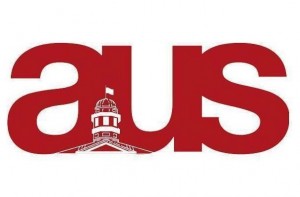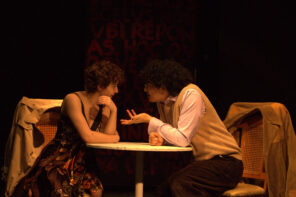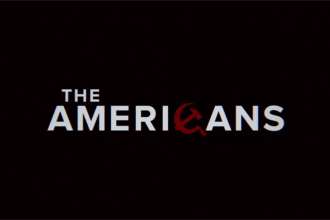The Arts Undergraduate Society held their second General Assembly of the year Monday evening in the Frank Dawson Adams auditorium. The GA presented motions regarding the selection process for the VP Finance position, improving McGill’s teaching spaces, protecting the Industrial Relations program, and giving incoming students more control over transfer credits. Since there were fewer than 150 students in attendance, quorum was not reached. As a result, all resolutions passed were recommendations to the AUS rather than binding decisions.
The majority of the Assembly was devoted to discussing reform of the VP Finance position. The reforms suggested by AUS President Devon LaBuik and current VP Finance Saad Qazi would require candidates for the position to present their credentials before the Arts Council. Councillors would vote on whether they approved of each candidate, and the results would then be made publicly available.
“This has been a very troublesome position for AUS in the past,” said LaBuik. This referenced the fact that previous VP Finances going back to 2008 had failed to file audits with McGill, resulting in serious consequences. In the 2010-2011 academic year, the University withheld $80,000 in student fees from the AUS and the Quebec government froze the AUS chequing account containing $16,000. These assets only became accessible when Qazi back-filed four years worth of missing audits earlier this year. VP Events Natasha Fenn supported the motion in light of this history, remarking that “when it comes to finance, we are the laughing stock of McGill as a faculty.”
There was concern that the reform could give Arts Council de facto power of selection for VP Finance through the ranking system. Arts Councillor Nicole Georges asked Qazi “whether he learned most of his job prior to being elected, or by shadowing the previous VP Finance,” to which Qazi responded with the latter.
VP Communications Yasmeen Gholmieh also stressed the importance of the position being democratic. “I do see both sides of the aisle of having requirements and not having requirements, but if you can convince Arts students that you are good for the job then you should get the job.”
In the end, the draft was shelved by a motion from Councillor Colleen Morawetz. “[The AUS should] table it until something more substantive comes forward,” Morawetz suggested. “This is all based on the bylaws, and we don’t have them in front of us.” Morawetz also questioned the ability of the Arts Council to effectively judge candidate qualifications.
As the proposal is being tabled just as the 2013 election season is about to begin, it is unlikely that it will be redone in time for this academic year. Following the conclusion of the GA, LaBuik commented to The Bull & Bear that the AUS would find other ways to hold the VP Finance accountable. When it came to the rejection of his proposal, LaBuik accepted the result. “It’s what the students want and that’s what’s important,” he remarked.
“Saad will introduce another motion, probably a softer motion, to try and achieve the same objective,” explained LaBuik. “I originally suggested just having a paid staff to do the administrative work [of the VP Finance position] because it is very important and we don’t always know what we’re doing.” Other suggestions included subjecting the VP Finance to mandatory training over the summer and increasing the length of candidate blurbs to allow all positions to better showcase their credentials.
The General Assembly also passed a motion concerning the safety of McGill’s teaching spaces. The motion, introduced by Qazi and Daria Sleiman of the Philosophy Students Association, called for the AUS to support the Faculty of Arts in calls for improvements to classrooms and buildings, particularly Room 101 of 3475 Peel Street. The motion passed and was amended to ask alumni for funding and to demand that McGill create an accessible list of classrooms that are not up to code.
Later on, VP Internal Justin Fletcher introduced a motion to declare support for the Industrial Relations program, an interfaculty program between Arts and Management. The Faculty of Arts is considering retiring the program because of upcoming faculty changes. According to Fletcher, “enrolment has actually been improving recently and the reason for retirement has nothing at all to do with enrolment.” This motion was also passed.
The final motion of the GA also generated some attention. Put forth by Fletcher and FEARC (Freshmen Events Academic Recreational Council) VP Academic Hilary Chu, the motion asked that the AUS lobby McGill to reform its policy on standing credits. The new policy would allow new students to ignore their standing credits and enter as U0 students if they desired.
As it stands, students who have successfully completed enough Advanced Placement courses or completed the International Baccalaureate Diploma Program must declare a major in their first year and are expected to graduate within three years, much like Québec students entering from CEGEP.
In the Faculty of Arts specifically, standing credits often do not replace introductory courses and are not recognized as contributing to major or minor concentrations. There was also concern that the current policy limits new students and does not give them an opportunity to experiment with different concentrations.
Chu cited a FEARC survey that determined that an “overwhelming majority of U1 students are forced to declare a major without knowing what they want do.” The resolution passed resoundingly with only a single opposing vote and one abstention. “[Changing the policy] doesn’t hurt anyone,” said Fletcher. “It just benefits students. Students who want to complete a three year program will still have the choice to do so.”








